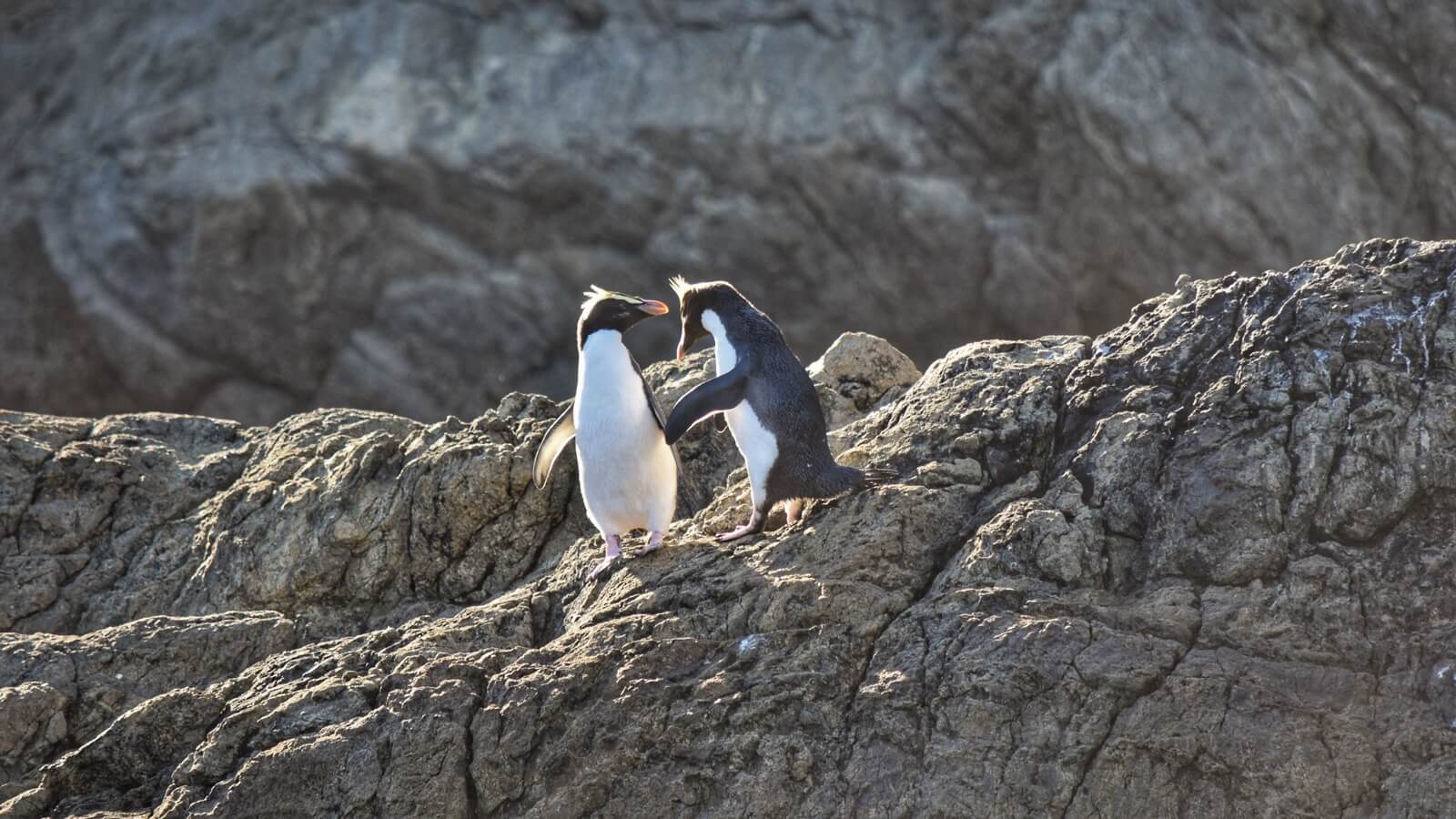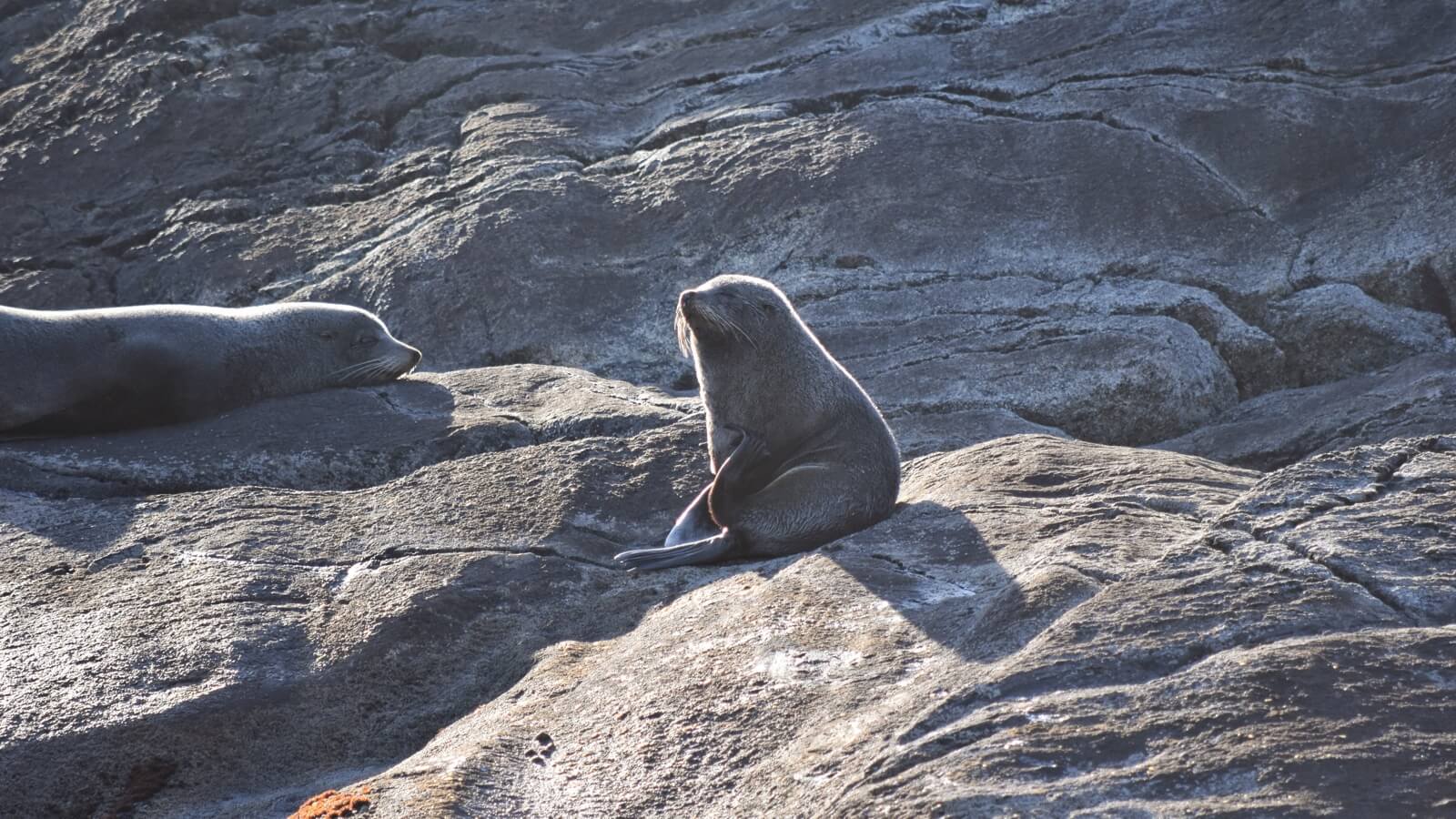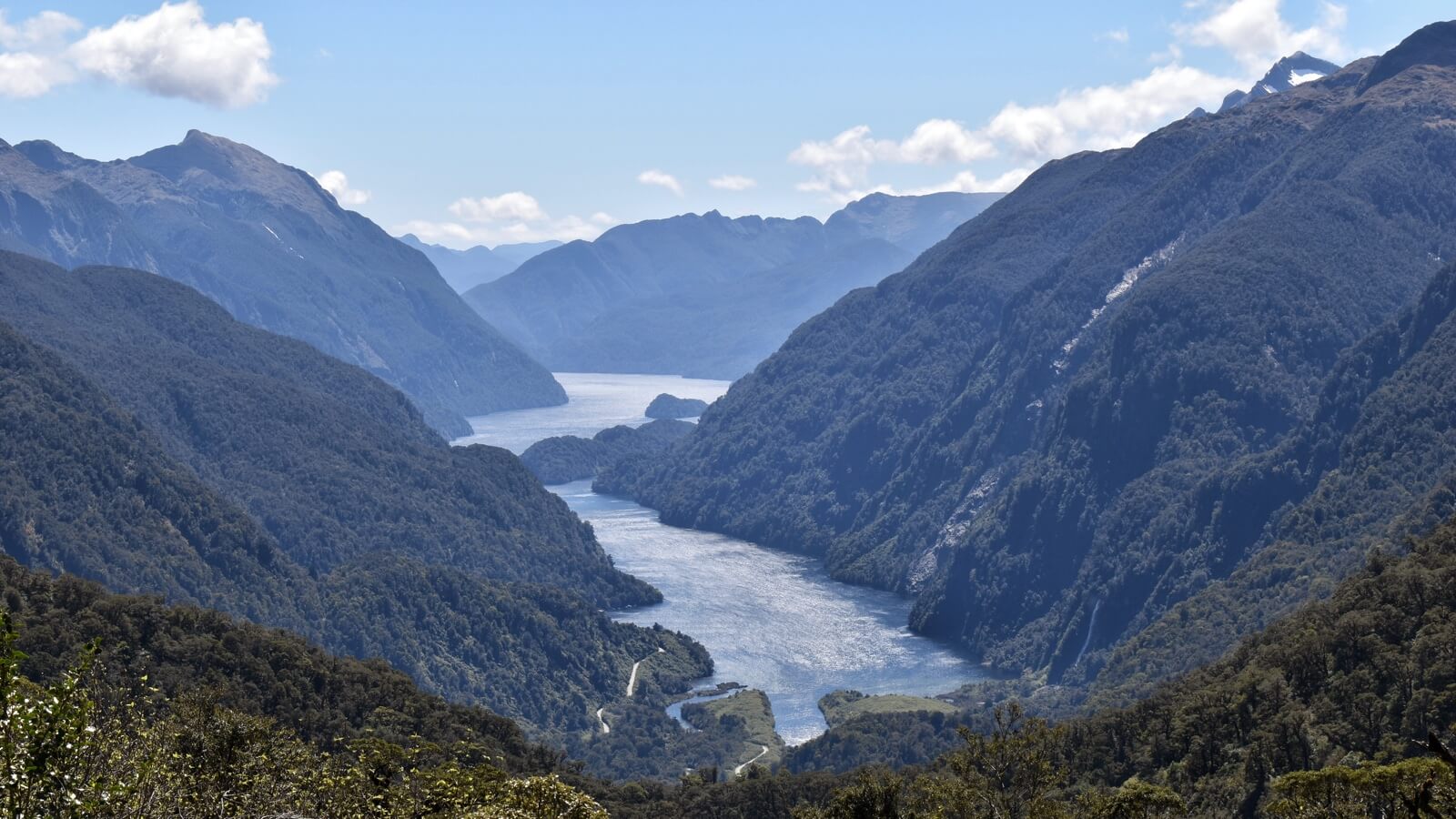We’d reached roughly the halfway point our the trip and you may have noticed that we've been a bit thrifty so far. Thanks to the fact that we’d been to a hotel only once and public toilets and tinned tomatoes had been central to our lives, the gods of Excel told us we were under budget, and this could only mean one thing… Time for some extravagance!
We found ourselves in the south-west of the South Island, close to roadless regions where camper vans fear to tread, so we decided to hit the water instead, and go on an overnight cruise to visit Doubtful Sound. A sound is a river valley that has been carved over millennia and then backfilled by the sea. There are several in New Zealand, but Doubtful Sound isn't one of them. As you might have guessed by the fact that it sits in Fiordland National Park, Doubtful is actually is a fjord. Apparently it is called Doubtful in English because Captain Cook sailed past and was doubtful that he’d be able to sail back out again. And people are down on Able Tasman for not exploring New Zealand! These very literal and mundane names are quite common here. Some examples just from this region: ‘Big River’, ‘Many Islands’, ’Wet Jacket Arm’, and, worryingly: ‘Gropers Bush’.
Even in the 21st century Doubtful Sound is not easy to get to. It took about 2 hours by boat and bus to get to Deep Cove, the closest point to the rest of civilisation. One reason it remains so remote is the weather - nobody stayed long enough to really develop the area. This has the upside that nobody was really around enough to ruin the ecosystem. The rocks, tree-filled cliffs and various arms of the water have all looked mostly the same for centuries. The main problem they have here is with non-human pests introduced by human settlers: rats, stoats, possums and deer. These can swim from island to island and make life hard for the local birds, who weren't used to the presence of mammals, with the exception of a few species of bat, before the Maori and Europeans arrived.

We can tell you all of these facts because the amazing cruise provided us with constant information about everything we saw. A nature guide walked around with a microphone to point out various flora and fauna, and gave a talk in the evening. We could see things from up close when we did some kayaking in a quiet corner. We also went out far enough to reach the Tasman Sea, and saw some penguins falling off rocks, seals relaxing in the sun, and even the first humpback whales of the season approaching the boat.
In between these thrilling experiences we noticed that the agency had somewhat undersold the food situation, with there being enough courses to keep a hobbit satisfied. They had mentioned a three course evening meal and breakfast, but not the afternoon tea upon arrival and bread and soup a couple of hours later. The brownies that were part of afternoon tea deserve a special paragraph. Sometimes it is unclear what the use of brownies are, since they are mostly diluted chocolate, and why play with your food like that? But these ones were still mostly chocolate, with some mysterious amazingness added in. If we would have had to choose between eating more brownies and seeing more whales it would have been a difficult call.

It was also great to have an itinerary that was arranged by other people, giving us a break from doing all of the planning ourselves. The crew of the cruise all seemed to have double roles including costume changes: waitress turns kayaking instructor turns kitchen hand. The cruises go every day so it must be a pretty non-stop job, starting at around 6am and going on until 10pm, with only a few hours in the middle of the day without guests. Apparently they sometimes use that time to volunteer for the Department of Conservation and check the area's rodent traps for rats and stoats. It's amazing that they can do all of this and be so friendly and upbeat. In the morning, the captain told all the guests to sit on the deck to listen to the birds and the waterfalls while he turned off the engines and generators on the ship. A very peaceful experience, which the staff must enjoy more than anyone.

It was hard to leave the boat when we got back to Deep Cove. The crew were already tossing big bags of laundry onto the shore, having made the beds for the new guests while we were eating breakfast. When we walked past the kitchen with our backpacks we could smell the new brownies being prepared. Would it be so hard to hide somewhere and take another ride?
This week we will be taking the tinned tomatoes on the road when we do a four day hiking trip called the Milford Track. It is so popular that in July when we booked we were already almost too late to get places on the boats that will take us there and the huts we will sleep in. We have high hopes that this means the sights will be so great that they will make us forget about being separated from our van.